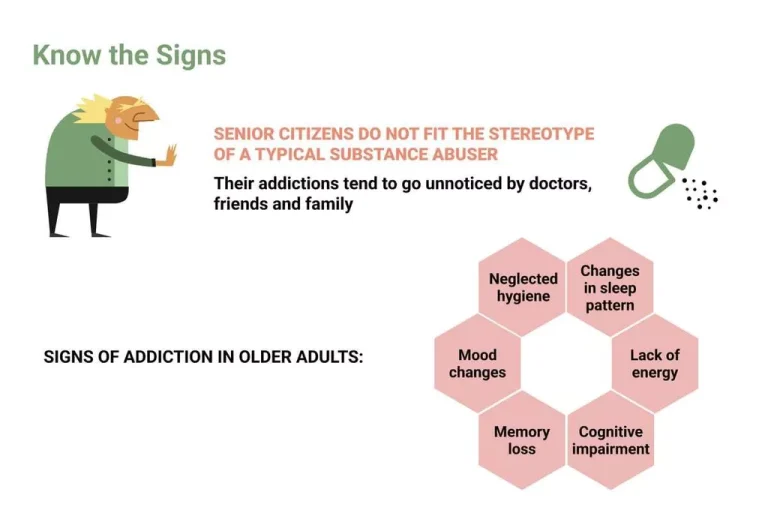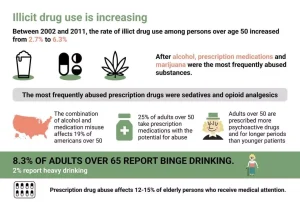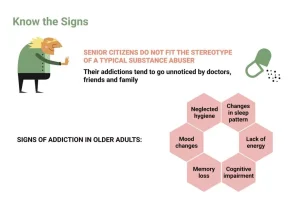
During this time, half of the amount of cocaine is cleared out of the body. The amount of time a drug remains in one’s system is determined by its half-life. Coke or cocaine usually stays in one’s system for up to three days from the last dose, but traces can be detected in a cocaine drug test for up to two weeks in heavier users.
Blood Tests…

One possibility is that at least some of them are the how long does cocaine stay in your system same genes that are affected by cocaine exposure. For example, variations in the genes encoding ΔFosB or any of hundreds of other genes affected by cocaine could conceivably contribute to the genetic risk for addiction. It is also possible that other genes—genes not affected by cocaine exposure—are responsible.
How Long Do the Effects of Cocaine Last?

While its effects are fleeting, the drug can remain in the body for extended periods, depending on factors like the frequency of use and individual metabolism. The frequency and amount of cocaine use are important factors that affect its detection times. Chronic and heavy use of cocaine can lead to the accumulation of the drug and its metabolites in the body, resulting in a longer detection window. On the other hand, occasional and low-dose use may result in a shorter detection window. Saliva testing, also known as oral fluid testing, is another method used to detect the presence of cocaine. Cocaine and its metabolites can be detected in saliva within minutes of use and can remain detectable for up to 2-3 days.
- Added to that, the actual duration of the high also varies between snorting, smoking, swallowing, or injecting coke.
- Cocaine blocks dopamine reuptake, leading to an intense buildup of this feel-good chemical that creates the drug’s high.
- If you or someone you know is dealing with cocaine use, professional support is available to address both immediate and long-term concerns.
- For example, ΔFosB, or any of the hundred or so proteins it regulates, represent possible drug targets.
When and Where to Get a Professional Psych Evaluation in Fort Pierce
That’s not to say fetal cocaine exposure isn’t harmful, but it’s hard to identify risks =https://ecosoberhouse.com/ that are specific to cocaine exposure alone. Short-term cocaine use can increase the risk of stroke, seizures, headaches, and coma. Unfortunately, there is no way for you to clear your body of cocaine faster in order to pass a drug test or reduce the severity of cocaine effects while taking it.


Coke is one of those drugs that hits you hard and fast, but the exact onset time depends on how you consume it. How long it hangs around and how long it can be detected by a drug test depends on several factors. Cocaine is classified as a Class A drug in the UK and a Schedule II drug in the US, meaning it is illegal for recreational use and has a high potential for abuse. You can also find out whether we accept your health insurance by filling out this simple and secure . To learn more about how we can help you address your cocaine use and other issues you may be struggling with, call us at .
How is Coke Metabolized?
Individuals experiencing depression are at risk of self-injury and suicide. The cravings and other unpleasant symptoms a patient experiences during withdrawal may prompt them to relapse, and this puts them at risk of overdosing. Several different factors influence the amount of time that cocaine remains in an individual’s system. Although these traits are relatively immutable, personality is a dynamic aspect that changes with time, experience, and environment. Drug and substance abuse changes behavior by altering the balance of the above personality traits, resulting in conflicted, foreign feelings—even to the person experiencing them. If you or a loved one are struggling with cocaine addiction, we can offer specialist advice and treatment packages facilitated by industry professionals at our Oasis Bradford treatment centre.

All of these variables will impact how quickly your body can break down cocaine. The identification of any of these compounds in a sample would suggest that cocaine is (or has recently been) present in the body. Our program addresses physical, nutritional, chemical, environmental, emotional, social, drug addiction spiritual, lifestyle values, and challenges.
- Cocaine typically stays in your system for 1 to 4 days, but it can be detected for up to a couple of weeks in some people.
- Scientists currently are working to identify which specific genes ΔFosB stimulates to produce its effects.
- Cocaine has a shorter half-life than many other drugs, which means that the body metabolizes it fairly quickly.
- If you’re wondering how long cocaine stays in your body, the answer can vary based on several factors, such as the type of drug test used, the frequency of use, and individual metabolic factors.
- In fact, under certain health insurance plans, you could receive coverage for up to 100% of the cost of your addiction treatment program here at Agape Behavioral.
Cocaine Withdrawal and Recovery
Within a few days, the body metabolizes all of the cocaine, and it is no longer in the system at all. Other sources, however, state that the initial half-life can be several hours. If you’re concerned about cocaine being in your system for whatever reason, it’s best to stop using cocaine immediately. Depending on your pattern of use, however, this might cause you to experience withdrawal symptoms. The NAc is the only brain region where ΔFosB is found in normal animals. However, chronic administration of cocaine has recently been shown to increase ΔFosB in several additional brain regions, such as the frontal cortex and amygdala (McClung et al., 2004).
That is why it is the preferred substance to detect when testing for its abuse. While urine tests are the most common form of drug testing, you should be aware of detection times for other types of tests. Blood tests can detect cocaine in your system for up to 2 days after the last use.
